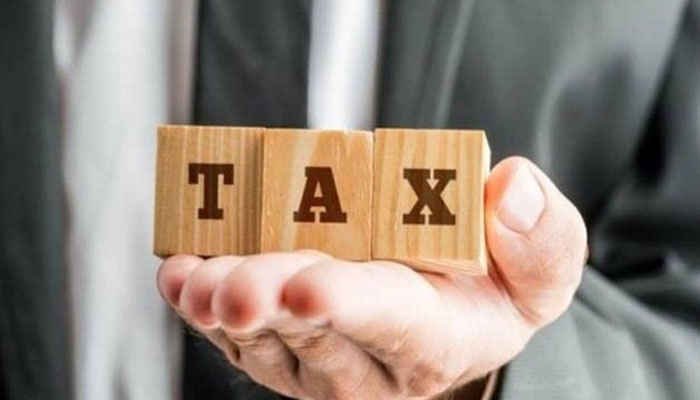Pakistan’s taxing tragedy
As result of these levies, amount sold by packaged juice sector has fallen by as much as 45%
A wise man once said that the only things certain in life are death and taxes. It would be safe to say that Pakistan’s salaried class – that is, those who have their income tax cut by their employer before they are even given their monthly salary – has been the most traumatised in its lifetime during the past fiscal year.
Income tax rates have been raised to levels never seen before, in large part because the government of Pakistan and the Federal Board of Revenue are either unable or unwilling to include the substantial retail and trading sector in the tax net.
The result has been that in the first 10 months of FY2024-25, the salaried class paid Rs437 billion in taxes, which was Rs150 billion higher for the same period in the previous fiscal year. The government and the FBR introduced a ‘Tajir Dost’ scheme to bring the retail sector under the tax net. However, as the same suggests, it relied more on this sector voluntarily stepping up and paying its share of tax, and that leads to the very obvious observation that no one would voluntarily pay tax. The result of the so-called ‘Tajir Dost’ scheme was spectacularly bad, and it netted a grand total of Rs4 million for the entire retail and trading sector.
Pakistani taxpayers are burdened with a continuously increasing tax burden, mostly because the state is unable to extend the tax net to all sectors contributing to national income, but which are either paying a pittance or nothing at all.
And this extends, as one would expect, beyond individual taxpayers to those in industry and commerce and in particular where production of consumer goods is involved. Large parts of the economy associated with the production of consumer goods is outside the documented tax net – such as cigarettes, juices, detergent and the like.
In this instance, the steady incremental imposition of indirect taxes such as general sales tax and federal and provincial excise duties has resulted in a situation where the tax increases are passed on to consumers who end up paying a higher price. Furthermore, since the undocumented sector is not taxed, it is able to sell its products at a relatively lower price. While that may offer a cheaper option to consumers, the clear loser is the government since the undocumented sector does not pay any tax to it. Even consumers, in the longer run, lose out because if each industry in a particular sector were to be included in the sales tax and/or the federal excise duty net, the burden of tax on the salaried class would ease because of the widening of the tax net.
Widening the tax net and rationalising the taxation structure, especially with regard to coverage of GST and federal excise duty, would also provide a boost to industry and commerce. The most obvious reason would be that a reduced tax burden is likely to spur more demand for a product, which in turn would lead to greater production and increased revenues for the producer. Consequently, families associated with the industry would stand to benefit since their incomes are dependent on the fortunes of the industry.
A particular telling example is the formal packaged juice industry, which has had a federal excise duty of 20 per cent imposed on it in addition to an 18 per cent general sales tax. As a result of these levies, the amount sold by this sector has fallen by as much as 45 per cent. The industry has in recent weeks asked the federal government to consider a reduction in the federal excise duty from 20 per cent to 15 per cent, and they argue this will actually benefit the government because the boost given to sales by the reduction in the FED would end up in a larger amount collected in tax.
Currently, the industry has argued that tax collection has become lower than before, and that is not an outcome any government would want if the aim was to enhance tax revenue. The fall in sales has also prevented any further investment in the industry, hampering potential growth in employment opportunities.
At the same time, the federal government and the FBR need to bring into the tax net the informal sectors of the economy, wherever they may exist. They also need to bring into the tax net certain formal parts of the economy, which, despite being documented, are able to evade paying their fair share of tax through underreporting sales, bribing corrupt officials, or simply because the state has been unable to levy either GST or FED on their production.
The same basic rationale applies to the salaried class. Widen the income tax net, make more people pay their fair share of tax. If the government can do that, it will be able to reduce everyone's income tax burden. That would not only increase the amount of tax collected, but it would also prove to be a very popular step among citizens.
The writer is a journalist based in Karachi. He tweets/posts @omar_quraishi and can be reached at: omarrquraishi@gmail.com
-
 Chris Hemsworth Gets Candid About Daughter’s Drawings That Inspired Several Of His Tattoos
Chris Hemsworth Gets Candid About Daughter’s Drawings That Inspired Several Of His Tattoos -
 UK To Experience Rare 'Blood Rain' On Tuesday Feb. 24, 2026: Know Every Detail
UK To Experience Rare 'Blood Rain' On Tuesday Feb. 24, 2026: Know Every Detail -
 Maria Shriver Shares Heartbreaking Reminder After Eric Dane's Death: 'Next Week Isn't Guaranteed'
Maria Shriver Shares Heartbreaking Reminder After Eric Dane's Death: 'Next Week Isn't Guaranteed' -
 Andrew Mountbatten Windsor Gets New Moniker After Losing ‘Prince’ Title
Andrew Mountbatten Windsor Gets New Moniker After Losing ‘Prince’ Title -
 Jack Black Shares Unseen Moments With Tanya Haden: 'My Love'
Jack Black Shares Unseen Moments With Tanya Haden: 'My Love' -
 Shamed Andrew Made Taxpayers Fund Personal ‘massages’
Shamed Andrew Made Taxpayers Fund Personal ‘massages’ -
 What Could Be Nick Reiner's Fate After Pleading Not Guilty Parents’ Murder Case?
What Could Be Nick Reiner's Fate After Pleading Not Guilty Parents’ Murder Case? -
 Princess Kate Talks About 'hard Conversations' With Kids Amid Andrew Drama
Princess Kate Talks About 'hard Conversations' With Kids Amid Andrew Drama -
 Prince William Mocked For Being ‘most Reluctant’ King-in-waiting
Prince William Mocked For Being ‘most Reluctant’ King-in-waiting -
 Prince William Makes Rare Admission After Andrew Arrest
Prince William Makes Rare Admission After Andrew Arrest -
 ‘Got A Lot Of People Gunning For Me’: Trump Makes First Comments On Mar-a-Lago Intruder
‘Got A Lot Of People Gunning For Me’: Trump Makes First Comments On Mar-a-Lago Intruder -
 What Countries Have A Say In Andrew Removal From Line Of Succession?
What Countries Have A Say In Andrew Removal From Line Of Succession? -
 How Did Luci4 Die? Police Probes 'BodyPartz' Sudden 'suspicious' Death
How Did Luci4 Die? Police Probes 'BodyPartz' Sudden 'suspicious' Death -
 King Charles Criticized By Princess Anne Over Andrew Drama
King Charles Criticized By Princess Anne Over Andrew Drama -
 Kelly Osbourne Hits Back At 'absolutely Devastating' Body Shaming Comments
Kelly Osbourne Hits Back At 'absolutely Devastating' Body Shaming Comments -
 Hailee Steinfeld Details Preparations Ahead Of Welcoming First Kid With Josh Allen
Hailee Steinfeld Details Preparations Ahead Of Welcoming First Kid With Josh Allen




